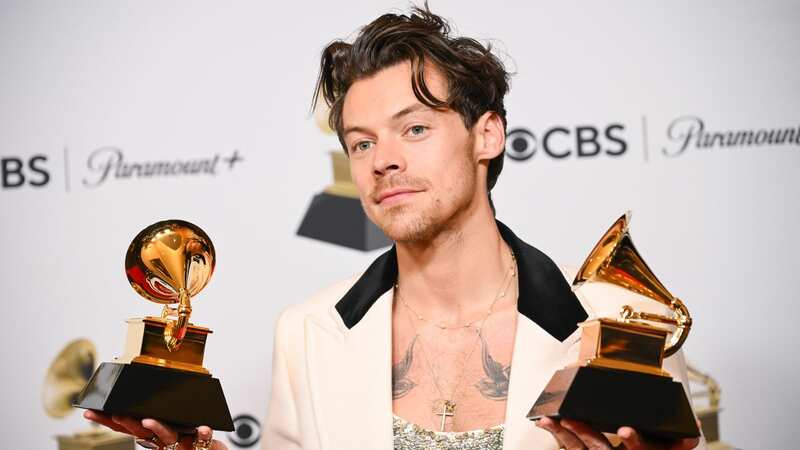AI song covers mimicking artists' voices could do 'harm' to music industry

If you've been on TikTok recently you might have spotted some unusual artist song covers floating around, with The Weeknd singing Hannah Montana or Harry Styles duetting Ceilings with Lizzy McAlpine.
"But it's not real," sings Lizzy in the hit song that went viral on TikTok - an appropriate song for this duet since Harry's voice in the cover isn't actually real, it's made by artificial intelligence (AI).
These AI covers are everywhere on TikTok right now, varying in success at mimicking the voices of popular artists but concern has been raised that this technology could become a danger to real musicians and the industry as a whole.
Discover, learn, grow. We are Curiously. Follow us on TikTok, Instagram, Facebook and Twitter.
Almost 300,000 fans have listened to The Weeknd and Harry Styles singing Something About The Sunshine from Disney Chanel Original Movie Starstruck thanks to AI music account Mayk Sounds.
 TikTok star dies after falling off 70ft coastal cliff while shooting videos
TikTok star dies after falling off 70ft coastal cliff while shooting videos
AI is a powerful new technology that can learn and adapt to give a more tailored or high level experience for the user. The AI creator can feed an artist's entire back catalogue to the software, including recorded or live vocals and speech patterns to allow it to mimic their singing.
The most well known of these is DiffSVC, created at The Chinese University of Hong Kong, which rose to prominence with users releasing some scarily accurate Ariana Grande AI covers.
With the increasing availability of AI software online, more and more fans have begun experimenting and creating their own covers using their favourite artist's voices - without the artist having any knowledge of it.
Fans are enjoying the more out there covers, such as popular artists singing High School Musical, or reviving artists who are no longer with us to sing modern songs - Kurt Cobain appears regularly on some AI accounts.
Most of these remain harmless with many fans saying the voices aren't as spot on as they could be, so would never replace the original.
"You guys are actually going insane this does not sound like Harry at all," said one fan about a Harry Styles AI song, which many argued sounded more like Troye Sivan.
Another added: "I like it, but it doesn't sound much like Harry," while a third joked: "Harry is not Harrying."
However, the covers open up a pandora's box full of legal issues as well as morality questions around how AI songs impact an artist's autonomy to decide what they sing.
Drake hit out against this TikTok trend in a since deleted Instagram story in which he shared an AI version of himself covering Ice Spice's song Munch. The God's Plan singer was clearly not happy with the likeness and simply wrote: "This is the final straw AI".
Since then major studio Universal Music Group (UMG) has reportedly asked streaming platforms like Spotify and Apple Music to block AI developers from using UMG artists to train the software.
 'I only date men with the same name - it sounds crazy but it works'
'I only date men with the same name - it sounds crazy but it works'
"We have a moral and commercial responsibility to our artists to work to prevent the unauthorized use of their music and to stop platforms from ingesting content that violates the rights of artists and other creators," a UMG spokesperson told Financial Times.
"We expect our platform partners will want to prevent their services from being used in ways that harm artists."
On top of this, Alexander Ross, a music and copyright lawyer, warned Insider that the AI covers could become an issue of copyright infringement even if the vocals are artificially generated.
He said: "You've stolen part of the recording and you've distributed it, communicated it with the public. There are all sorts of grounds for infringement proceedings there."
Read more similar news:
Comments:
comments powered by Disqus

































